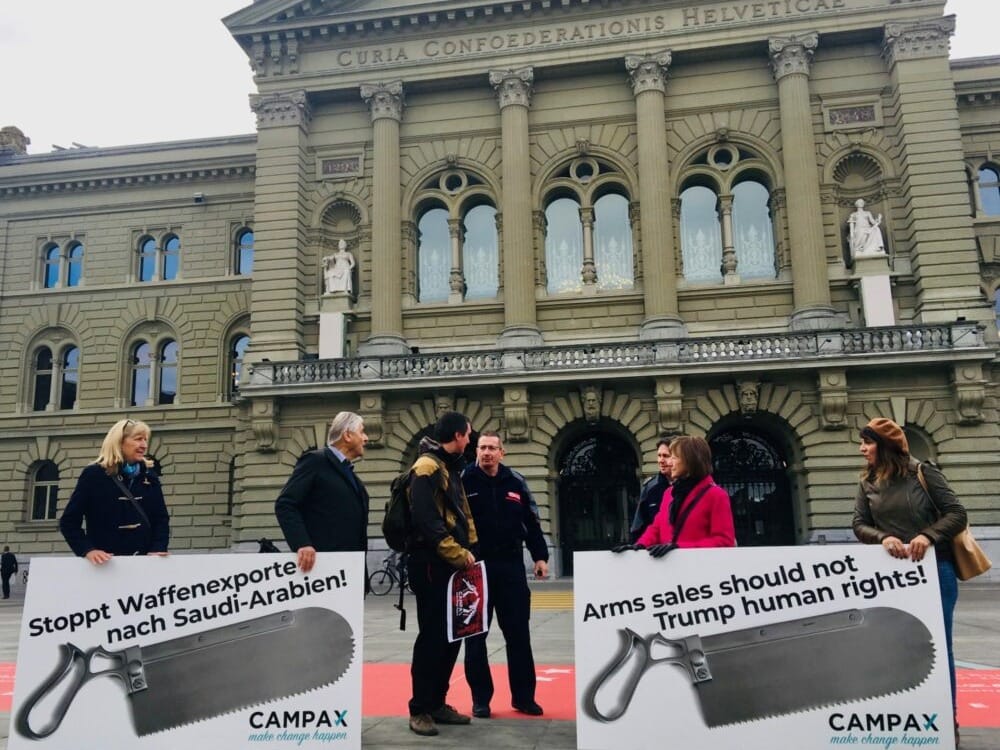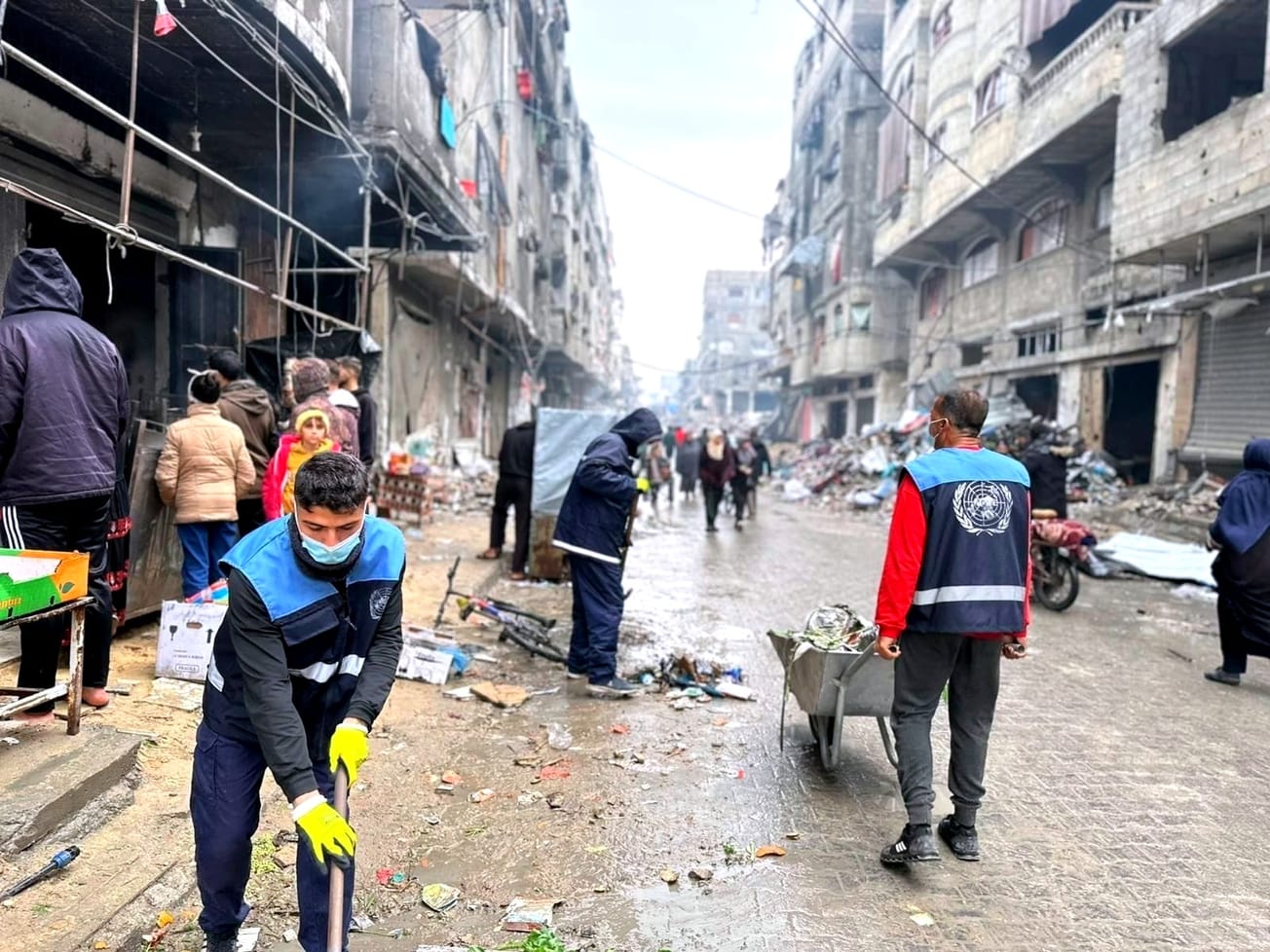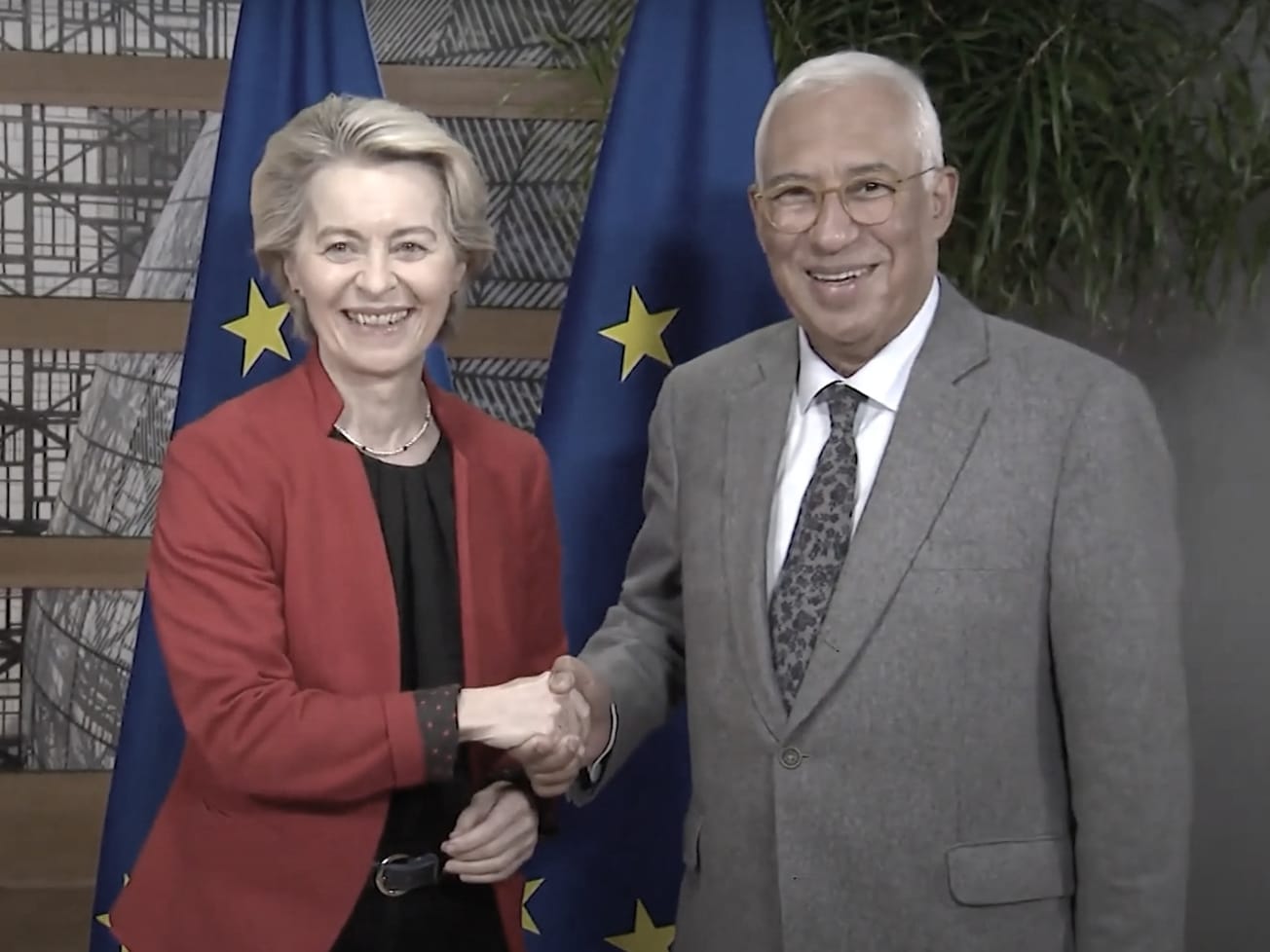BERN, Switzerland — Despite their small numbers, protesters in the Swiss capital reflected a growing confluence of concerns over global weapons sales and the murder of a Saudi dissident journalist.
Outside the U.S. Embassy in Bern and Swiss Parliament Building, about a half-dozen activists gathered to hold signs to protest the role of global weapons sales in aggravating international conflicts amid the global uproar over Saudi journalist Jamal Khashoggi's apparent murder.









